

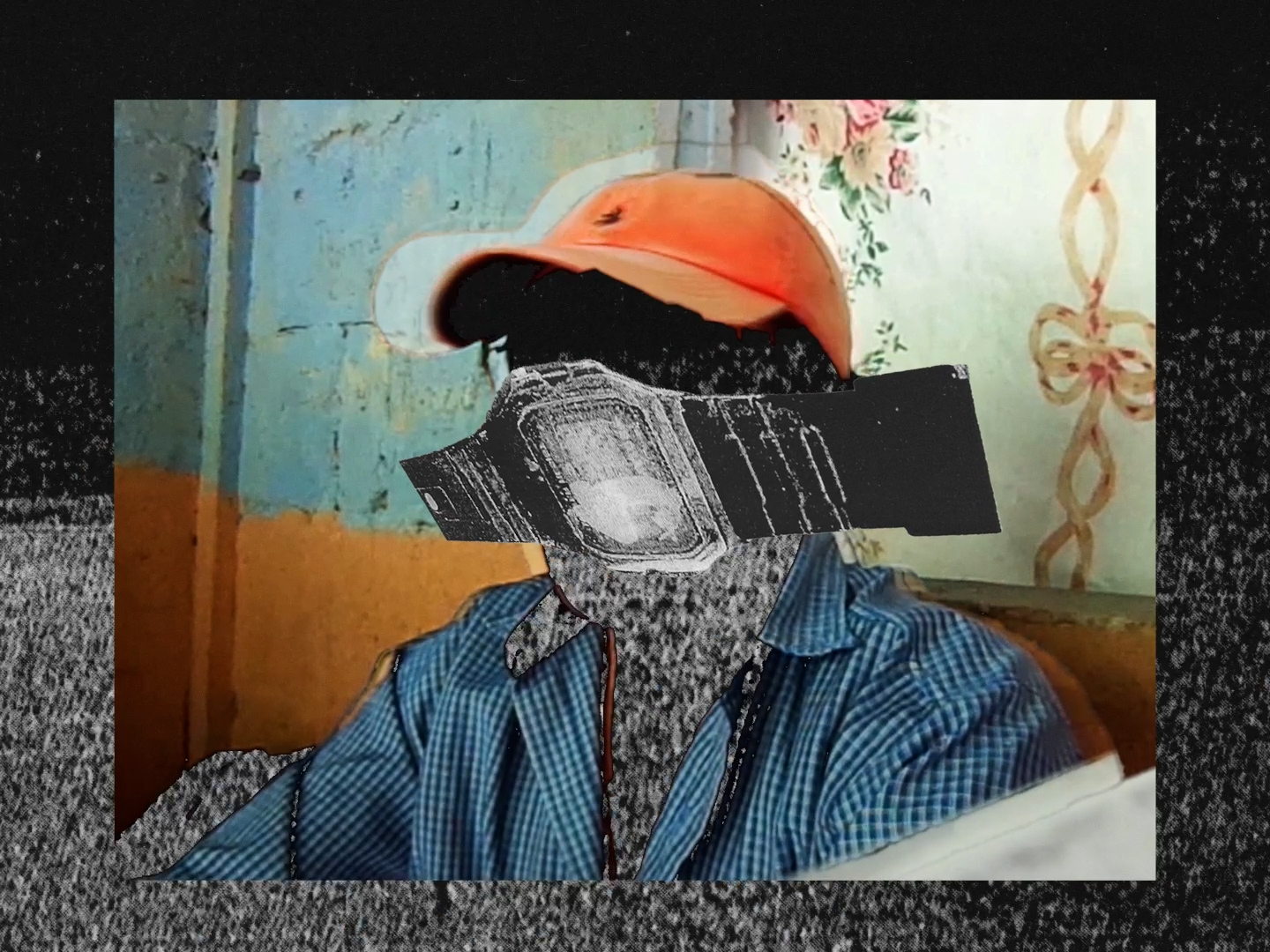
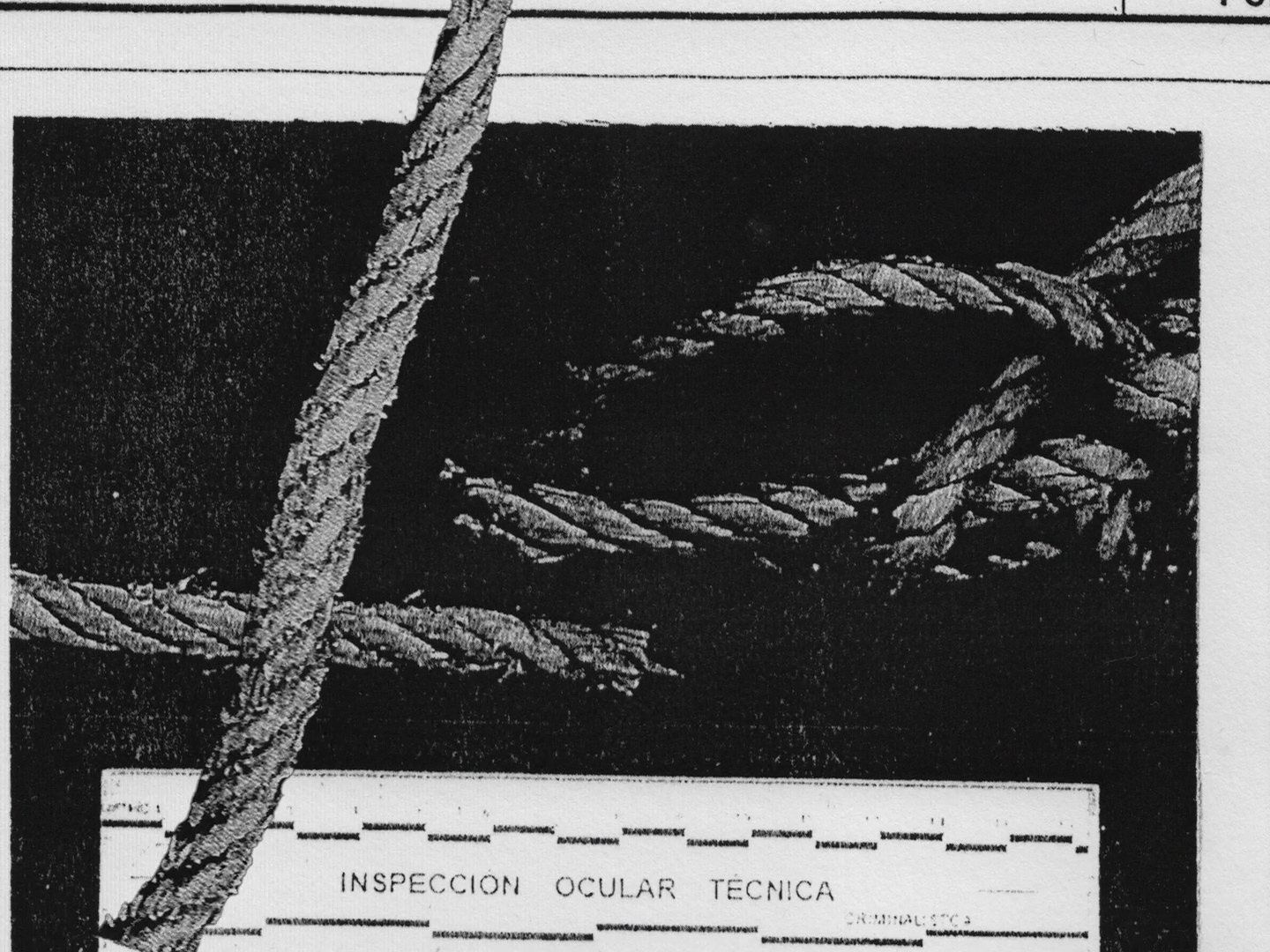

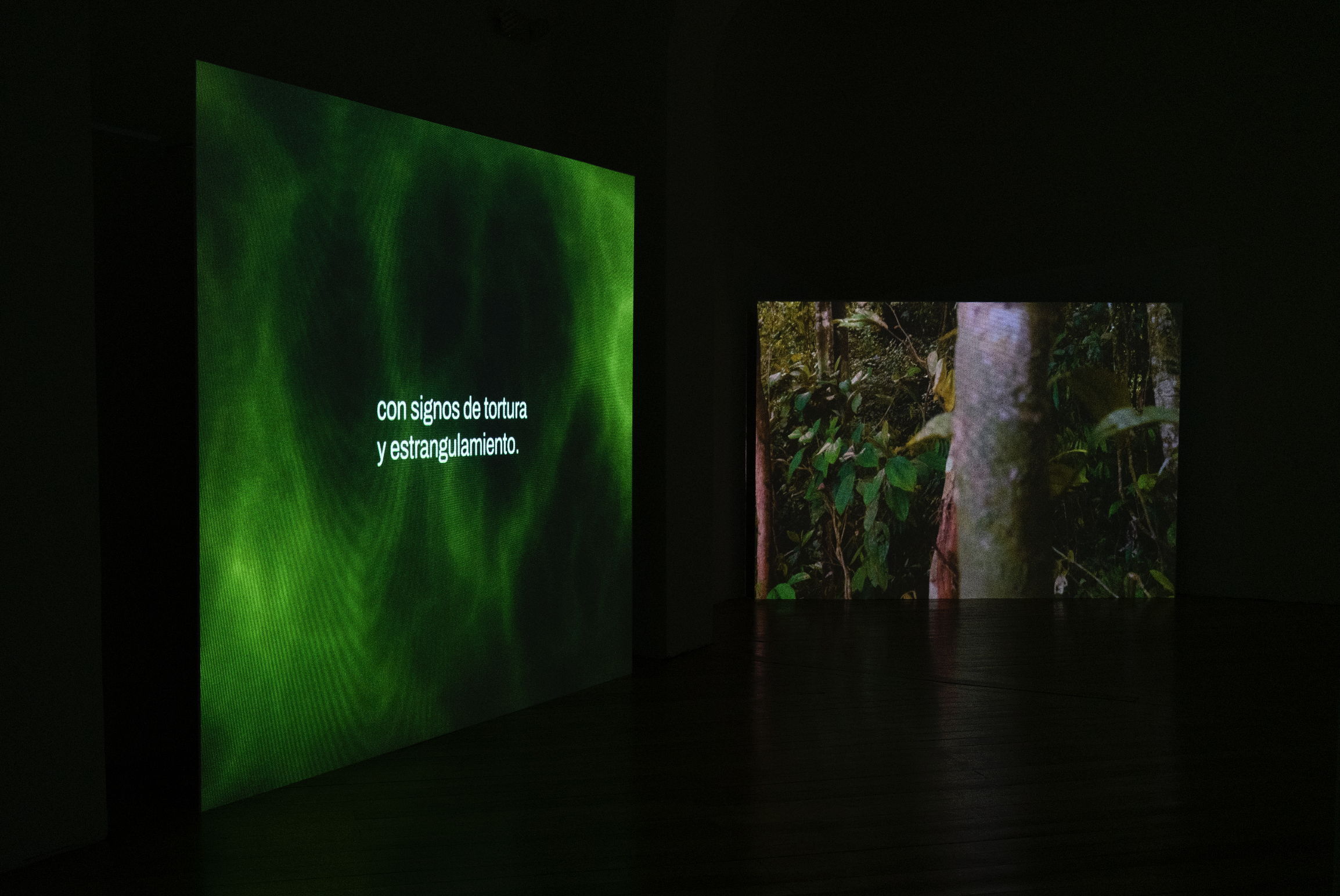


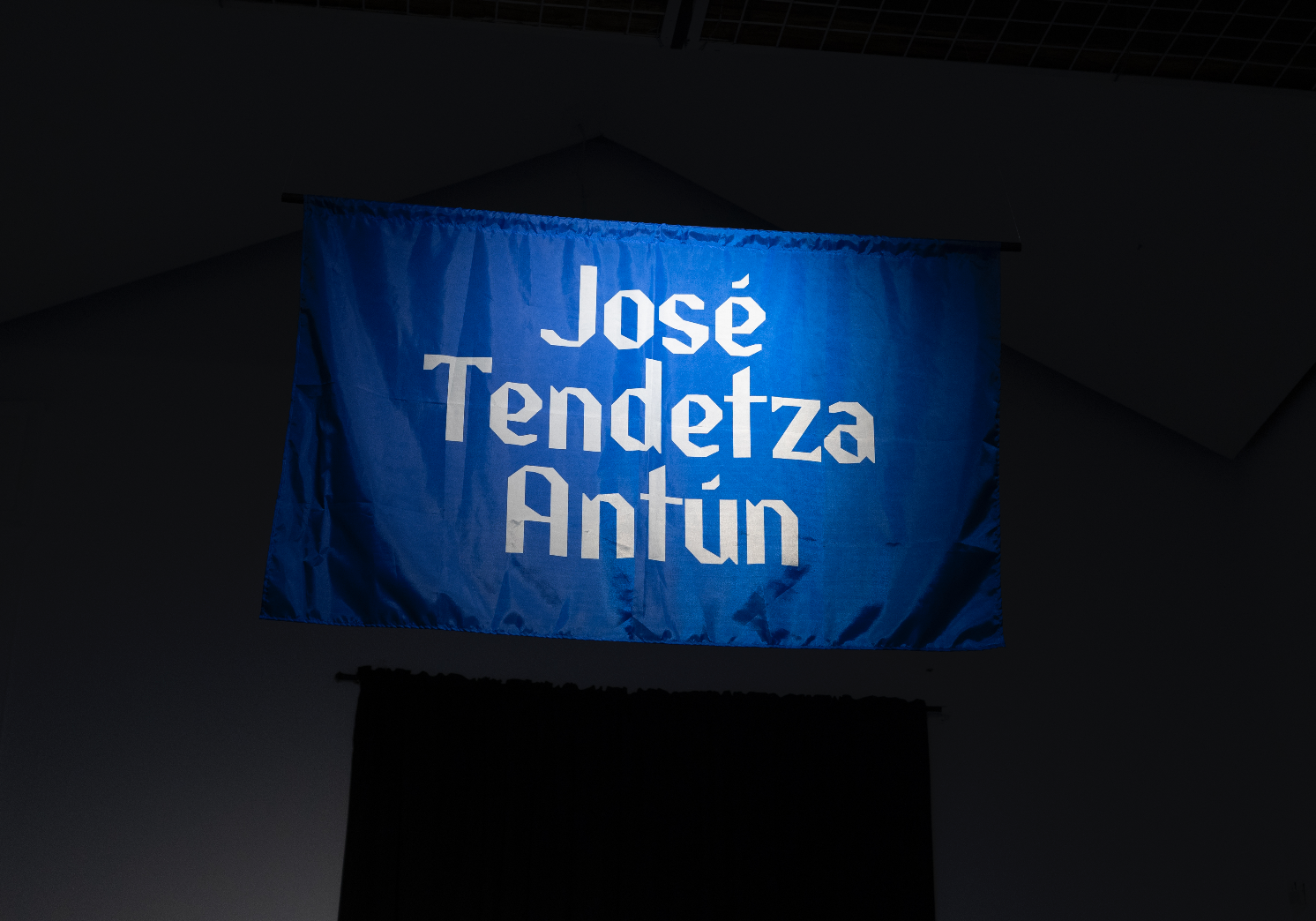

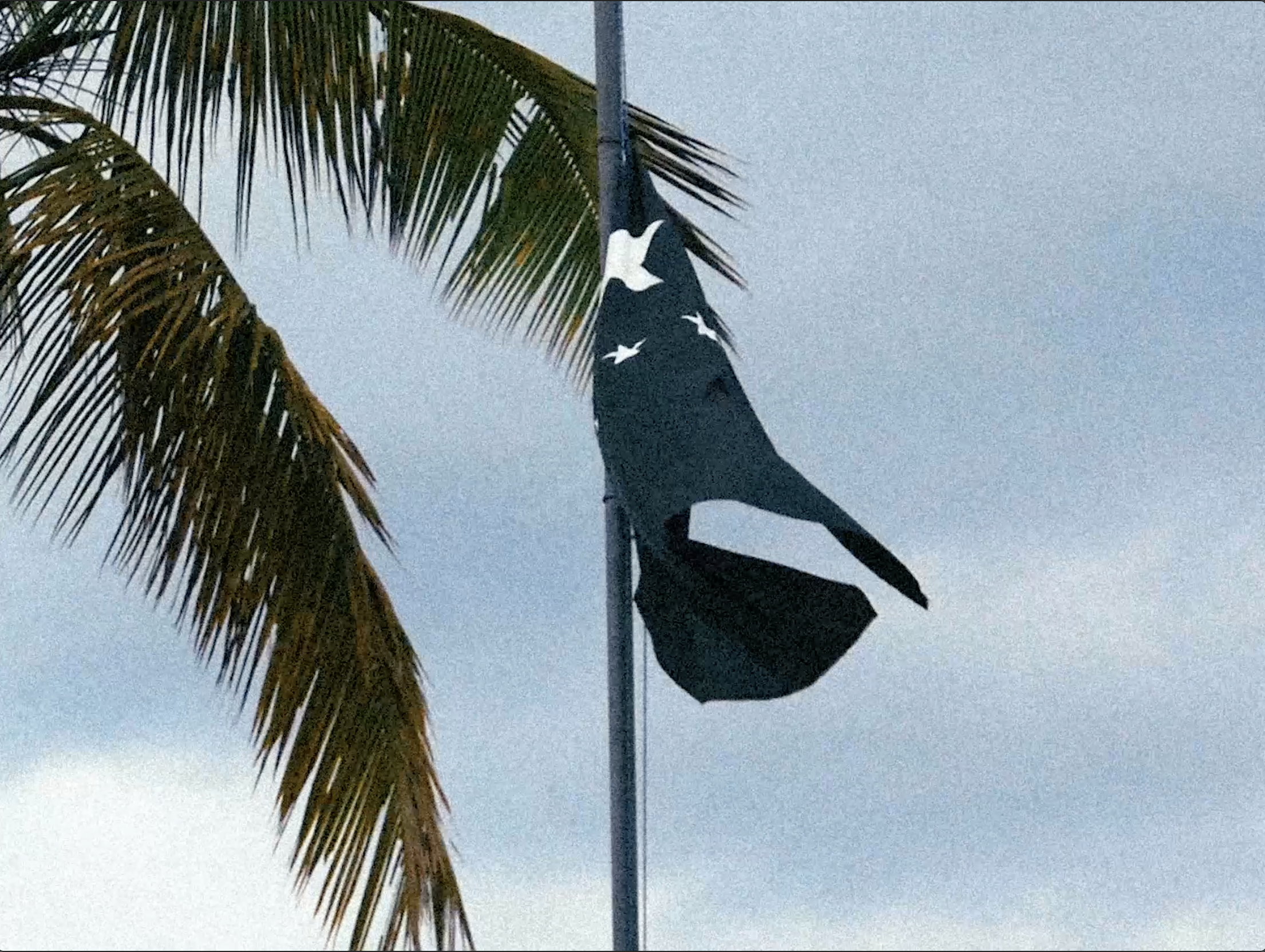


José (Territory and Memory)
1. José. 3 videos on panels. 8 minutes. 2023
2. José (Mirador). Video installation 5 TV sets. loop, blue flag and 10 archive boxes. 2017/2023
3. José(networks). Videos from social networks of workers of the open pit mine Mirador. 2023
1. José. 3 videos on panels. 8 minutes. 2023
2. José (Mirador). Video installation 5 TV sets. loop, blue flag and 10 archive boxes. 2017/2023
3. José(networks). Videos from social networks of workers of the open pit mine Mirador. 2023
- Exhibition installation at the Quito Contemporary Art Center 2023
- Selected work for residency program Q21 Artists-in-Residence of MuseumsQuartier Wien, Austria. 2022
"when it is cold outside and the night is long, memory reminds us that we are not alone" (Debray 2007: 8).
Despite the fact that the 2008 Constitution guarantees plurinationality, the rights of peoples and nationalities, as well as the change of the anti-extractivist development model, throughout these years the Ecuadorian State has promoted the entry of transnational mining companies into indigenous territories, allowing the violation of several rights, forced displacements, soil and water contamination and an intensification of violence throughout the area.
In the Cordillera del Cóndor, located between the provinces of Zamora Chinchipe and Morona Santiago, are the ancestral territories of the Shuar nationality and the lands of peasant settlers. The Mirador and Panantza San Carlos mining projects, currently owned by the Chinese consortium CRCC Tongguan Investment Co. and executed by the Ecuadorian companies EcuaCorriente and ExploCobres, have been underway in this area for more than twenty years.
Faced with this, the organizations and communities of the Shuar nationality raised, since the invasion of the mining projects, a sustained process of resistance and defense of their ancestral territories, which places human and non-human life in the center and makes visible the capitalist and accumulative interests of the companies, as well as the corruption, negligence and complicity of the State.
José Isidro Tendetza Antún, raised his voice against the extractive interests of the Mirador Project from the organizational leadership of the Shuar nationality as vice president of the Shuar Kakaram Association and trustee of the Yanúa Kim community located in Tundayme, canton El Pangui in the province of Zamora Chinchipe.
In December 2016, José disappeared. A few days later his body was found in the Zamora River, floating lifeless, tied with a rope that went around his chest, waist and hand: José was murdered, strangled and tortured. The case was closed in the Ecuadorian courts without determining who was responsible. To this day there is no justice or reparation.
The systematic irregularities of the state institutions that were in charge of the case, added to the permanence of mining projects in the territory, exemplify the implementation of a way of governing that is based on the organization of death and selective dehumanization; The historical spoils of the colonial and racist order that turn nature into merchandise, building or unlimited resource, are the gear of a world built on a hierarchy that determines, on the one hand, those lives that are worthy of being lived and the deaths that deserve mourning; and on the other, the disposable lives and bodies, the NNs, the murdered without truth or justice, the buried in complicit silence, those who must be forgotten.
In the middle of the jungle and in the streets of the uprising people, José is silence and assembly, he is river as rope and rope as asphyxiation, he is the heart of a tree and footprint, he is death in the hands of power and he is also the right breath of air that we need to take root.
May José and his struggle overflow us.
Words by : Alejandra Santillana Ortiz
Despite the fact that the 2008 Constitution guarantees plurinationality, the rights of peoples and nationalities, as well as the change of the anti-extractivist development model, throughout these years the Ecuadorian State has promoted the entry of transnational mining companies into indigenous territories, allowing the violation of several rights, forced displacements, soil and water contamination and an intensification of violence throughout the area.
In the Cordillera del Cóndor, located between the provinces of Zamora Chinchipe and Morona Santiago, are the ancestral territories of the Shuar nationality and the lands of peasant settlers. The Mirador and Panantza San Carlos mining projects, currently owned by the Chinese consortium CRCC Tongguan Investment Co. and executed by the Ecuadorian companies EcuaCorriente and ExploCobres, have been underway in this area for more than twenty years.
Faced with this, the organizations and communities of the Shuar nationality raised, since the invasion of the mining projects, a sustained process of resistance and defense of their ancestral territories, which places human and non-human life in the center and makes visible the capitalist and accumulative interests of the companies, as well as the corruption, negligence and complicity of the State.
José Isidro Tendetza Antún, raised his voice against the extractive interests of the Mirador Project from the organizational leadership of the Shuar nationality as vice president of the Shuar Kakaram Association and trustee of the Yanúa Kim community located in Tundayme, canton El Pangui in the province of Zamora Chinchipe.
In December 2016, José disappeared. A few days later his body was found in the Zamora River, floating lifeless, tied with a rope that went around his chest, waist and hand: José was murdered, strangled and tortured. The case was closed in the Ecuadorian courts without determining who was responsible. To this day there is no justice or reparation.
The systematic irregularities of the state institutions that were in charge of the case, added to the permanence of mining projects in the territory, exemplify the implementation of a way of governing that is based on the organization of death and selective dehumanization; The historical spoils of the colonial and racist order that turn nature into merchandise, building or unlimited resource, are the gear of a world built on a hierarchy that determines, on the one hand, those lives that are worthy of being lived and the deaths that deserve mourning; and on the other, the disposable lives and bodies, the NNs, the murdered without truth or justice, the buried in complicit silence, those who must be forgotten.
In the middle of the jungle and in the streets of the uprising people, José is silence and assembly, he is river as rope and rope as asphyxiation, he is the heart of a tree and footprint, he is death in the hands of power and he is also the right breath of air that we need to take root.
May José and his struggle overflow us.
Words by : Alejandra Santillana Ortiz